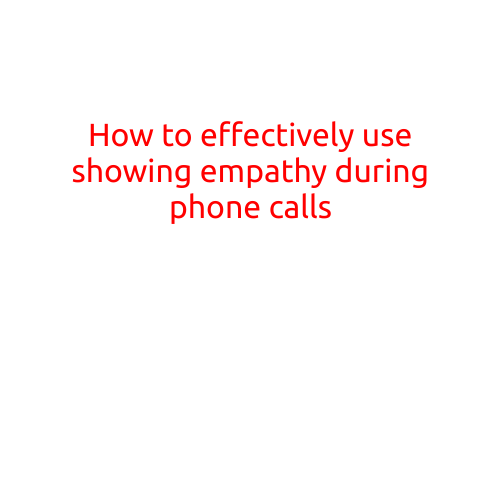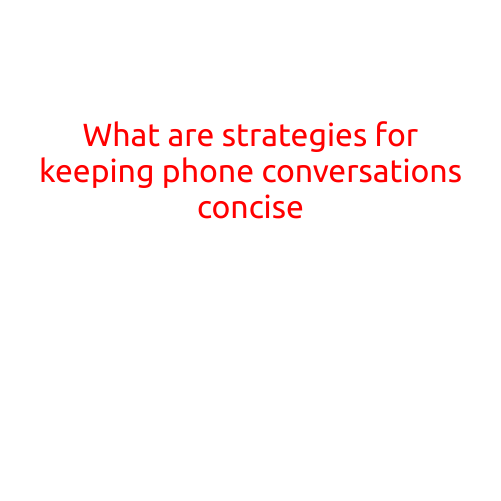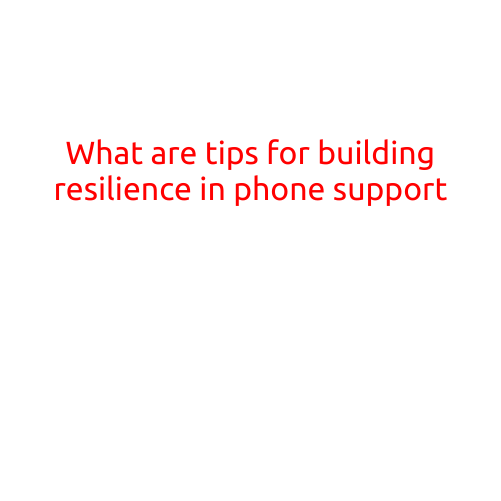
How to Effectively Use Showing Empathy During Phone Calls
When it comes to having a productive and meaningful phone conversation, showing empathy is a crucial aspect to master. Empathy is the ability to understand and share the feelings of another person, and it’s essential in building strong relationships, resolving conflicts, and providing excellent customer service. However, in the age of digital communication, where written words can sometimes lack tone and nuance, it’s more important than ever to learn how to effectively show empathy over the phone.
Why is Showing Empathy Important During Phone Calls?
Showing empathy during phone calls can help to:
- Build trust and rapport with the caller
- Create a sense of understanding and connection
- Resolve conflicts and improve communication
- Provide a positive customer experience
- Foster loyalty and repeat business
Tips for Showing Empathy During Phone Calls
- Listen Actively: The most effective way to show empathy is to listen actively to the caller’s concerns. Pay attention to their words, tone, and emotions, and respond accordingly.
- Acknowledge Their Feelings: Use phrases like “I can imagine how frustrating that must be” or “I understand why you’d feel that way” to acknowledge the caller’s emotions.
- Show You Care: Show the caller that you genuinely care about their issue by expressing sympathy and understanding. For example, “I’m so sorry to hear that” or “That sounds really tough.”
- Use Empathetic Language: Use words and phrases that convey empathy, such as “I can imagine”, “I understand”, “That makes sense”, or “I’m here to help”.
- Pause and Reflect: Sometimes, a simple pause and reflection can go a long way in showing empathy. For example, “That’s a really tough situation… I can imagine how you’d feel.”
- Be Authentic: Authenticity is key when showing empathy over the phone. Make sure your tone and language come across as genuine and sincere.
- Avoid Scripts and Clichés: While it’s important to be consistent in your responses, avoid using scripted phrases that come across as insincere. Instead, focus on using natural, conversational language.
Common Mistakes to Avoid
- Don’t Interrupt: Allow the caller to finish speaking before responding.
- Don’t Minimize Their Concerns: Avoid dismissing the caller’s concerns or downplaying their feelings.
- Don’t Use Jargon: Avoid using technical language or jargon that the caller may not understand.
- Don’t Be Passive: Avoid simply nodding along without actively listening or responding.
Conclusion
Showing empathy during phone calls is a crucial aspect of providing excellent customer service and building strong relationships. By actively listening, acknowledging emotions, and using empathetic language, you can create a sense of understanding and connection with the caller, leading to a more positive and productive conversation. Remember to be authentic, avoid common mistakes, and focus on building trust and rapport with every caller.





